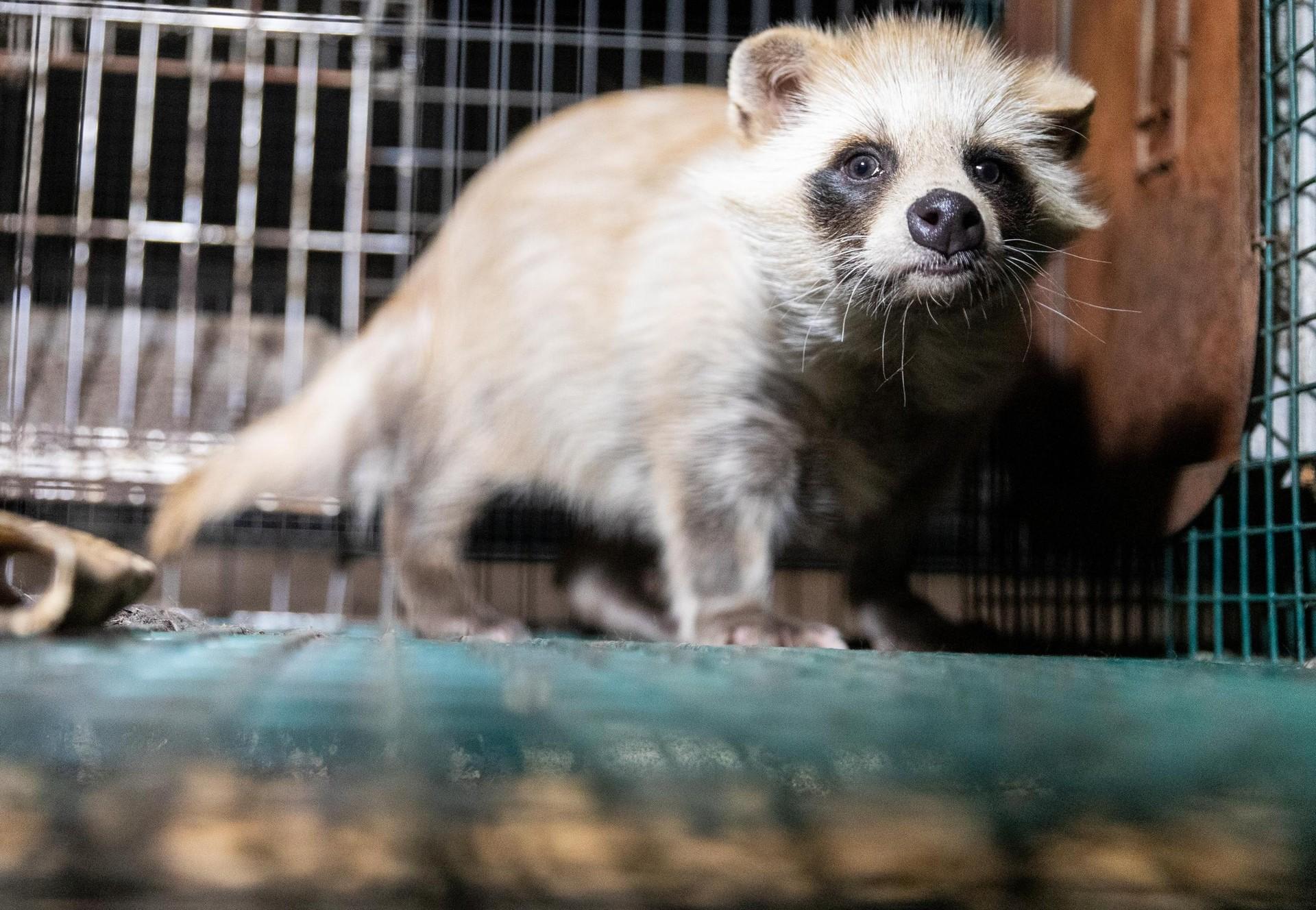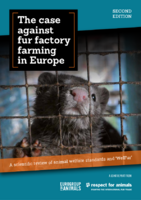
The Truth About Fur
Even a fur trim comes from extreme cruelty to animals
Whether a fur pom-pom, fur collar or fur trimming on jackets and scarves, each tiniest piece of trim is directly connected to cruelty to animals. No matter how much fur is used, from an animal welfare perspective , real fur is never 'ethically correct'. The fur industry has been serving us this and many other lies for years in order to rehabilitate the use of fur. In fact, tens of millions of animals are killed for fashion items every year worldwide.
Due to a reduced demand, legal restrictions in more and more EU Member States and devastating COVID-19 and avian influenza outbreaks on fur farms, global production numbers are declining. The vast majority of furs traded worldwide originate from fur farms mainly in China and Europe where mink, racoon dogs, foxes and other animals are kept in tiny wire cages. In these cages the animals are unable to act out natural behaviour and have species-typical experiences like swimming or digging. This monotonous life leads to permanent stress, severe behavioural disorders, self-mutilation and cannibalism. After a few months, the young animals on fur farms are killed in the so-called 'fur harvest'. They suffer an agonising death by gassing or electrocution.
No legal protection for fur animals
In the EU there are no directives or detailed regulations on keeping fur-bearing animals. In 1999, the Council of Europe adopted a recommendation on fur farming. However, it is totally inadequate from the perspective of animal welfare because it continues to permit the confinement of fur animals in tiny cages. Wire-mesh floors and a lack of areas for climbing, digging and bathing are tolerated. Many EU states have no additional regulations on fur farming. Fortunately, more and more countries choose to protect fur animals through stricter national legislation or by completely banning fur farms. But on a global level, most fur animals are either insufficiently protected or not protected at all. China, the world’s principal producer of fur, also has no enforceable law that would protect animals on fur farms.
Place your cursor or finger over the image, click/tap, and erase the top image to reveal the truth.
Animal welfare needs cannot be met on fur farms
The 2023 published report The Case Against Fur Factory Farming: a scientific review of animal welfare standards and ‘WelFur’ reveals the extent of animal welfare failings inherent on fur farms and highlights that the current regulatory framework for the protection of fur animal welfare in the European Union is inadequate. It also finds that the fur industry’s WelFur scheme is not able to address the major welfare issues for mink, foxes and racoon dogs farmed for fur and establishes that enrichment of existing housing systems is unable to address the welfare problems inherent in the cage systems used by the fur industry.
Trapping of wild animals
Trapping, too, is extremely brutal. In North America especially, coyotes, foxes and red lynx are caught using spring traps, snares and body-gripping traps. However, whatever animal first activates a trigger is trapped. Hence, trapping injures or kills countless dogs, cats, deer, and other animals. Trapped animals are often not killed immediately and may be left in agony for days.
Fur products are always based on animal suffering. Luckily, an increasing number of fashion chains go fur-free.
Our demands...
- Fashion companies stop selling of fur products!
- Statutory bans on fur farming, as well as an associated import and trade ban on fur and fur products!
- Until a sales ban on fur is achieved: clear labelling of fur products regarding species, production method and origin so consumers can choose to object to animal cruelty in their clothing.


